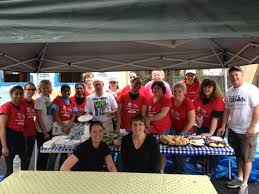Weddings. Bar Mitzvahs. Graduations. There are so many reasons to have a party – and that’s good for you as a caterer. Starting a home catering business will involve a lot of work on your part. You’ll need to create a plan that establishes how to launch and maintain the business – things like buying supplies, balancing the accounting books, and creating and cultivating client relationships. Here’s how to get started:
Make A Plan
A business plan outlines what you’re in business for. It should be a written plan with a statement of purpose, a tally of initial funding, and revenue and profit projections. It should also detail your expected costs, how you intend to gain and keep customers, and how much money you need to live on until the business becomes profitable.
Why do you need all of this information? Because many businesses need financing from a bank at some point. Even if you have savings, you might be surprised by how quickly you blow through it. What happens when your bank account runs dry? You’ll need more capital to expand.
Banks like to see that you’ve invested your own money into the venture to make it work. They also like to know that you know what you’re doing. A business plan helps convince the loan officer of exactly that.

Get Licensing
It’s a fact of life – the government requires that you be licensed to do business. Make sure you get all of your required permits and licenses before you actually accept any orders. You’ll also need to contact the Department Of Health and have them inspect your kitchen – a commercial kitchen. In most areas, it’s illegal to cook out of your own home.
Define Your Market
It doesn’t do you any good to go charging into the world without having a defined market. Not everyone who fogs a mirror will be your ideal customer. In most cases, specialization trumps generalization. That means that you should try to focus on serving a group of people – say people who are getting married.
Why limit yourself? In a sense, you aren’t. When someone thumbs through the phone book, or does a search in Google, for local wedding caterers, and your name not only pops up but pops up as an expert wedding caterer, then you’ve got a better chance of getting the business. After all, you’re the expert. Think about it from the customer’s perspective.
When you are pricing out a particular service, you might be willing to accept a generalist if it’s not a major concern. On the other hand, you know for a fact that a specialist will do a much better job than any generalist. That’s why master carpenters get paid more than handymen. That’s why the wedding cake specialist get paid more than the local bakery that does cakes for everyone.
Buy Supplies
You’ll need supplies like tablecloths, cooking utensils, pots, pans, and pretty much everything else you can think of that would and should go into a kitchen and dining room. When you run a catering business, you’re basically setting up and breaking down a restaurant every single day.
If that weren’t enough, you usually aren’t allowed to cook out of your home kitchen, so you’ll need to rent out a commercial kitchen. In a larger city, you can usually rent space by the hour or by the shift. In smaller towns, you might be able to rent out kitchen space from a nightclub or some other establishment that isn’t open during the day.
Develop A Marketing Plan
Having a well-designed website is also important, since you want potential clients to feel comfortable with your business before they even call you for an initial meeting – a website can help create that relationship, especially if you offer a free newsletter or post videos about your business for people to watch. Model your site off other successful sites to start with. Make sure it is functional and displays all you products and services upfront. Check out sites like the www.lenstore.co.uk and see how they present their information to their customers.
You can’t do anything without marketing. People need to find you, and the best way to get eyeballs looking at your rate sheet is to use direct mail and direct response both online and offline.
John Sheppard runs a home catering business in the city. An avid blogger, he likes to help others by posting his informative articles on the Web.























